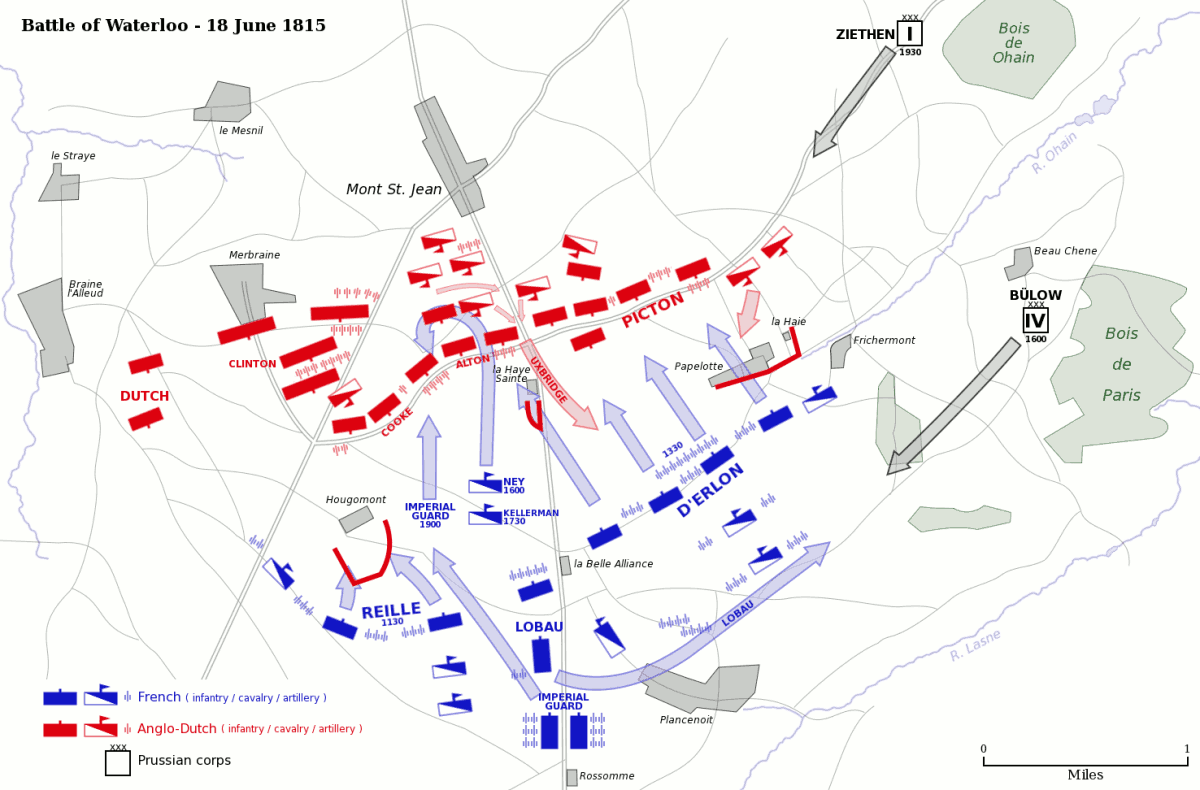The Battle of Waterloo
June 18, 1815
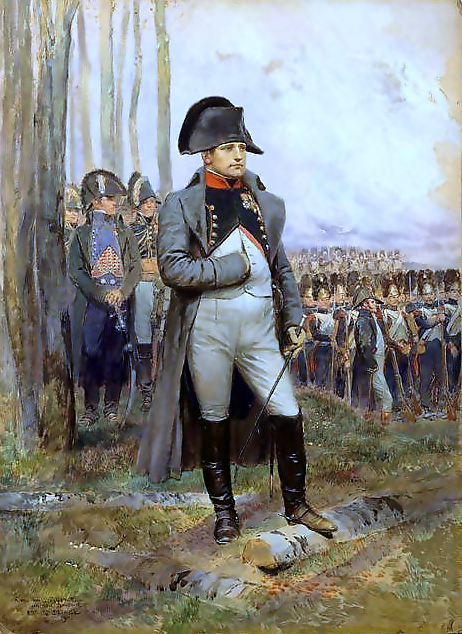
One of the iconic figures in history who never needs to be identified by name. The hat with the distinctive side-to-side design was purposely worn by Napoleon to distinguish himself even from a great distance from all the other officers in the French army. In this way, his men, as well as those of the enemy would be able to see him. The Duke of Wellington remarked on more than one occasion that his mere presence on the battlefield for the French was worth 40,000 men.
One only has to say the name "Waterloo" and immediately even those with only the most casual knowledge of history know that you are speaking of the most famous battle in history. Why this of all battles is generally awarded first place on the list is the subject of this podcast.
You know the story... Napoleon escapes from his island exile on Elba and makes his dramatic return to France, now under the rule of Louis XVIII, brother of the guillotined Louis XVI. Marshal Ney is dispatched from Paris by the king to stop the escaped emperor. Ney promises to bring Napoleon back to Paris in an iron cage, but defects and joins the rebellion. Meanwhile, the allied monarchs and their ministers are stunned to hear the news at the Congress of Vienna and vow to defeat the living legend once and for all.
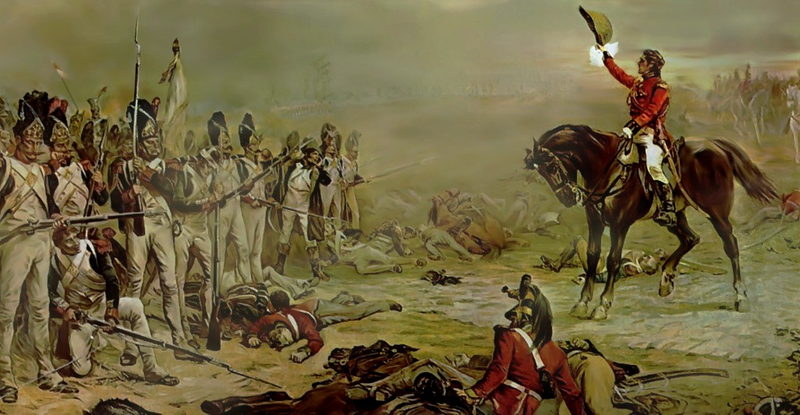
Here is the story of how the all-or-nothing bid for restoration of the French Napoleonic Empire unfolded in the famous 100 days that began when the Paris garrison defected and Napoleon entered the capital on March 20, 1815. We will discuss the maneuvering and disposition of the Prussian forces under Marshal Blucher, the Anglo-Dutch-Germans under Wellington and, of course, the French marching north into Belgium under Napoleon. We will learn that the story of Waterloo is really a story of several battles at Quatre Bras, Ligny and Wavre fought over a period of several days, each with its own story and culminating in the climactic battle of Waterloo itself. We will learn of the many missed opportunities that could have turned the world upside down and turned Waterloo into another improbable victory by the master of improvisation. We will discuss how the battle was won by Wellington in one of the most calculating and courageous defensive masterpieces ever managed by any field commander in history and the contribution Blucher and the Prussians made to the outcome.
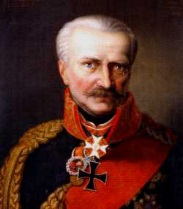
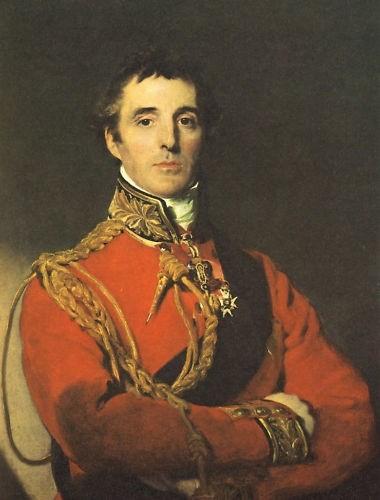
For Napoleon Bonaparte, it was the last battle he would ever command or fight and marked the historic end of the 18th century. For 100 years after Waterloo, there would never again be a general European war with every major and most minor nations in Europe completely exhausted and bankrupt. Napoleon would be captured shortly after his second abdication in a desperate attempt to board a ship to America, brought to St. Helena, a tropical island off the coast of Africa, where he died only six years later.

